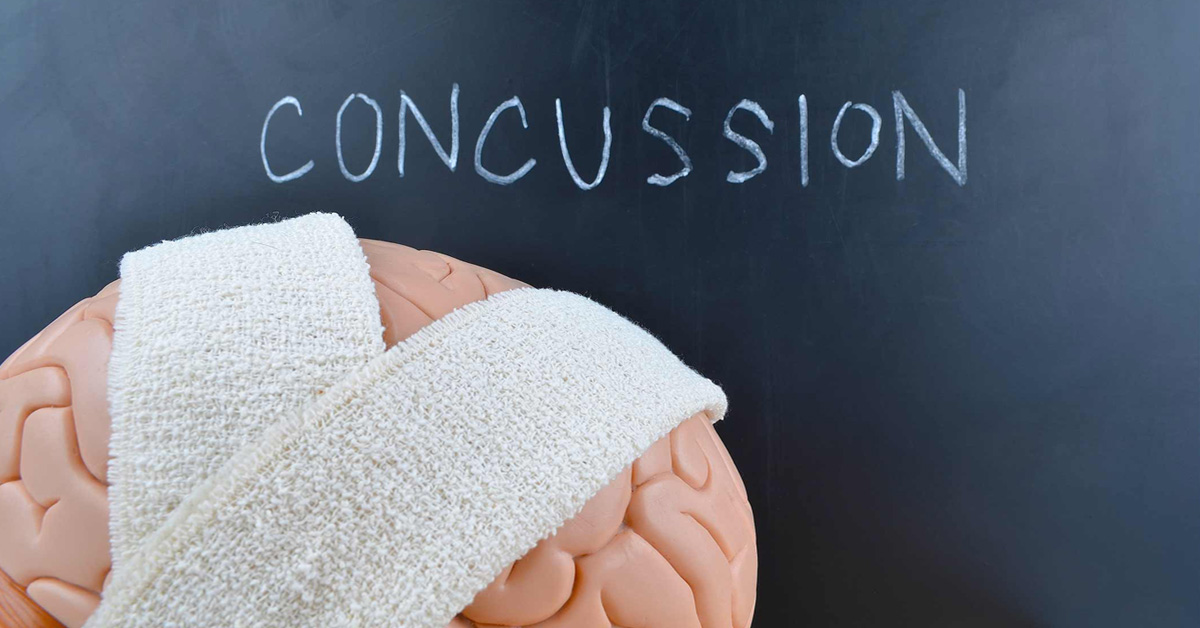A concussion can happen to any child. Neuropsychologist and concussion specialist Dr. Jill Brooks wants every parent to be prepared with facts about concussion prevention and care. She works closely with patients, their parents, and schools to help concussion patients feel better and return to being productive and active.
A concussion is a traumatic brain injury but it does not necessarily happen on the sports field. Many children suffer concussions as an indirect injury, due to whiplash from a car accident or fall, or from a blow to the chest or another part of the body. Many concussions do not involve direct injury to the head.
Since a blow to the head is not the only precursor to a concussion, when should parents be concerned that their child might have a concussion? Parents should look for any changes in behavior, complaints of headaches, or difficulty focusing.
When parents suspect a concussion, they often visit their local pediatrician or emergency room for care first. Many times, a child’s recovery can be relatively short, a matter of weeks. However, sometimes symptoms can last for months, even up to a year. Parents may have seen multiple doctors, but report that their child’s symptoms persist. Parents may not be aware that a concussion specialist may be able to offer additional insight.
When choosing a concussion specialist, parents should ask about the physician’s experience and training in treating concussions. The treating physician must be up to date with concussion care guidelines so that he or she can make appropriate recommendations to parents and schools.
Parents can help the concussion specialist by bringing with them records of their child’s past school performance. Parents of children who receive special education and related services should bring their Individualized Educational Plans (IEPs). These records may help the doctor understand the challenges the child faced before the concussion, and how the concussion may manifest.
The same injury can affect children differently. It’s important to look at “the brain that arrives” at the concussion, Dr. Brooks says. What she means is that pre-existing or pre-morbid conditions–including learning issues, anxiety and depression–interact with the concussion injury. According to Dr. Brooks, when a child with such conditions experiences a concussion, often “the volume gets turned up” on those pre-existing conditions. For example, if a child has ADHD, he or she often becomes more impulsive following the injury and runs a higher risk of re-injury.
Symptoms of a concussion are often misunderstood. Parents and schools should understand that the body’s stress response to a concussion can manifest as depression and anxiety. “Depression and anxiety are listed as concussion symptoms,” Dr. Brooks states. She says that doctors work to help children with these symptoms, recognizing that they are real and part of the child’s concussion injury. Concussion specialists may teach strategies such as mindfulness to help patients through their recovery and beyond.
Physicians have developed a protocol for systematically returning children with concussions to school and play. It is more important to return student-athletes to the classroom first. It is common for re-injury to occur when athletes return to the gym and to play too soon. For this reason, a conservative policy should be followed in moving children with concussions back into gym and contact sports.
Parents and schools may not understand how individual differences factor into how long recovery will take, and what it requires. For children with concussions that take months instead of weeks to resolve, returning to school is often a gradual process. The accommodations that children need in order to make a successful return to school can differ widely.
A concussion specialist works to set individualized recovery expectations. Dr. Brooks says that parents are often relieved to hear that what their child is going through “makes perfect sense.” The concussion specialist may write a letter to the school district to help them understand the particular child’s needs, and devise a program to facilitate a speedy recovery.
The good news, according to Dr. Brooks, is that “for the most part, these children get better.”
Dr. Jill Brooks is a clinical neuropsychologist and concussion specialist. She has her own private practice, called Head to Head Consultants PA, located in Gladstone, New Jersey. She has taught at Robert Wood Johnson Medical School, has written numerous articles on the topic of concussion, and lectures widely.


